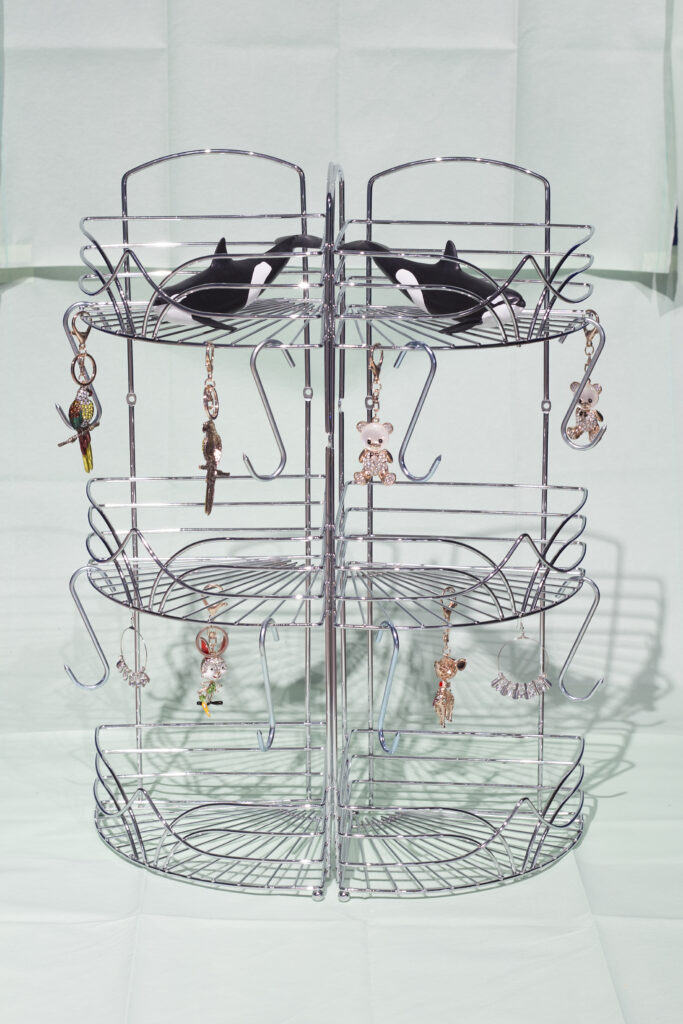
Mia Raadik (1989) is a conceptual feminist artist, whose work challenges social norms and highlights their underlying causes. Her main focus is stigmas associated with being a woman and mental health.
Raadik began exhibiting in the 2010s. Her first exhibits include a series of schematics and charts, deconstructing personal and complex experiences. Raadik’s Master’s thesis and the following exhibition at Tartu Art House (2015–2016) focused on pareidolia, the tendency of the human mind to see meaningful images in random structures, and displayed images of field rocks showing patterns that could be perceived as human faces. At the exhibition “Ede-dear, don’t you know that we don’t talk about these things” (Hobusepea Gallery, 2018) the artist told the story of how she fell in love with her boss, using long and even tedious charts and graphs. Alongside subjective experiences, Raadik introduced the theme of work under late capitalism, where a person is destined to be reduced to an element in an Excel sheet.
Raadik’s show “Sailin’ on the Red Sea” (Kogo Gallery, 2019) also focused on the alienation of the individual in a broader system. This time the show was inspired by a phone app the artist was using to track her menstrual cycle, using it as an example to criticise the working mechanisms of this type of technology. For example, these programs often define what a normal cycle should be like. The starting point for the show was the artist’s endometriosis diagnosis, a condition causing painful menstruation among other things. Looking closer at her own medical history, Raadik discovered discrepancies in the medical system that has historically failed to sufficiently acknowledge women’s medical complaints.
Raadik continued exploring social expectations for women with her show “Menopause Club. NB! Exclusive” (Kraam artist-run space, 2019), aiming to start a discussion on menopause, a topic often considered taboo. Once again, it was inspired by the artist’s own condition, the treatment of which could mean bringing on early menopause. Raadik exhibited an installation of carefully composed bathroom accessories and small toy animals. The title referred to menopause as something desirable and exclusive, breaking the commonly associated stigma.
The show “The Best You Can Ever Be” (curated by Corina L. Apostol, Tallinn City Gallery, 2020) used products of the beauty industry to question the possibility of self-care in a neoliberal society. Juxtaposing promises that beauty products can make people the best versions of themselves with a personal story of depression and the medical history of overcoming it, Raadik highlighted the contrast between the lures of the capitalist world and the behind-the-scenes of real life. Just like with the show “Menopause Club”, the artist no longer exhibited technical graphs characteristic to her earlier work, however, as a method she still employs deconstructing reality to create a sense of order in the world.
Mia Raadik studied at the Faculty of Fine Arts in the Estonian Academy of Arts (MA, 2015). She has exhibited at the 16th Tallinn Print Triennial “Literacy-illiteracy” (Kumu Art Museum, Rundum artist run space, 2014) She has had solo exhibitions at Tartu Art House, Hobusepea Gallery, Haapsalu City Gallery, Kogu Gallery, artist run space Kraam and Tallinn City Gallery. In autumn 2021 Raadik was artist in residence at the ISCP Residency in New York.